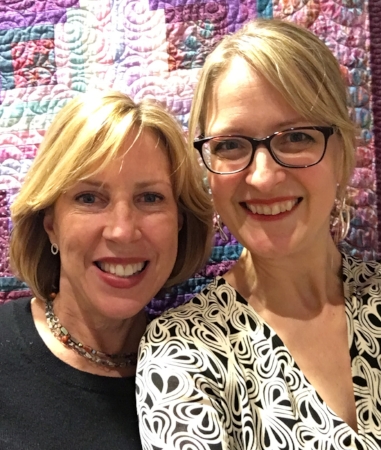WomensHistoryReads interview: Aline Ohanesian
I took a step back to tally up my #WomensHistoryReads interviews and lo and behold -- we've made it to FIFTY! Amazing! Not done yet, of course, but I wanted to pause a moment and remark on how wowed and humbled I am by the response to this project. How grateful I am that more than 50 amazing women writers have been quick to say yes, quick to give time and thought to this project, quick to recognize that calling attention to women from history (and the women who are inspired by them) isn't just an activity for 31 days a year.
And I'm thrilled to share three answers and a question from Orhan's Inheritance author Aline Ohanesian as the fiftieth (again, exclamation points seem appropriate!!) Q&Q&Q&A in this series. I love her thoughts on history and its biases, how fiction can "restore that which has been lost," and which historical figure gives the best side-eye.
Aline Ohanesian
Greer: Do you consider yourself a historian?
Aline: No. I have a Masters in US History from the University of Irvine. I'm what you call ABD, All But Dissertation, in that I never filed the dissertation to earn my PhD but passed all the oral tests. Being a historian is taxing, detailed work which requires a great deal of expertise, extensive footnoting, etc. There are some parallels between historians and writers of historical fiction, but the differences are important and can't be ignored. My favorite difference is when the research is done, I get to use my imagination to recreate the people, time and events. That's my idea of great fun.
Greer: Agreed. If you could pick one woman from history to put in every high school history textbook, who would it be?
Aline: I dropped out of my PhD program in history partly because I really wanted to write fiction but also because the way history has been traditionally recorded was really frustrating to me. Thankfully, the gender, class and race biases of our history books are definitely being challenged by a new crop of historians. If I had my way, I would change all the history books to include hundreds more women. Putting one woman back into any historical narrative just isn't enough.
At The Getty Museum here in Los Angeles, there's a bust from 1859 of a woman named Mary Seacole, a Jamaican woman whose medical services to British troops on the front lines of the Crimean War made her a household name. That's not how women of color are usually portrayed in history. Let's bring Mary Seacole back, is what I'm saying. Let's bring all the voices traditionally drowned out or erased. That's the kind of history that gets me excited. It's the kind of history that inspires me to write fiction. To use fiction to restore that which has been lost. To those who call this revisionist, I say that every written account of a historical time is revisionist, even when it's written right there in the battle field. What traditional historians chose to include and exclude was itself a form of revision. (As a side note, Mary Seacole gives the best 'side eye' of any historical figure. Every statue, likeness, painting of her features this side eye. Now that's a woman whose story I'd like to know,)
Bust of Mary Seacole, Henry Weeks, 1859
Greer: What’s the last book that blew you away?
Aline: The last book that blew me away was Fates and Furies by Lauren Groff. It's a fascinating exploration of a long marriage from the perspective of both the husband and wife. It's a masterpiece both in terms of structure and on a sentence by sentence level. I know I'll return to it again every few years, just to remind myself what can be done with the English language.
My question for you, Greer: Girl in Disguise takes place in Chicago in the late 1850's. Do you ever get so enthralled with a time and place that you're tempted to set another novel there? Is it hard to move on from the novel's world and its characters?
Greer: I feel like I fall completely under the spell of every era I write in, so yes! I always have real trouble moving on. Maybe that means I'll return to those times and places one day. For example, I have a whole outline for a novel about Adelaide Herrmann, the real-life Queen of Magic who appeared in The Magician's Lie. But for now, I keep getting entranced by other people, other places, other times. There is just so much history out there for us to draw on, so much inspiration. I'll never get to write all the books that are percolating in my head, but I'm sure as hell going to write as many of them as I possibly can.
For more from Aline:
Twitter: @AlineOhanesian
Website:
(And of course, tune in tomorrow for #51!)




















